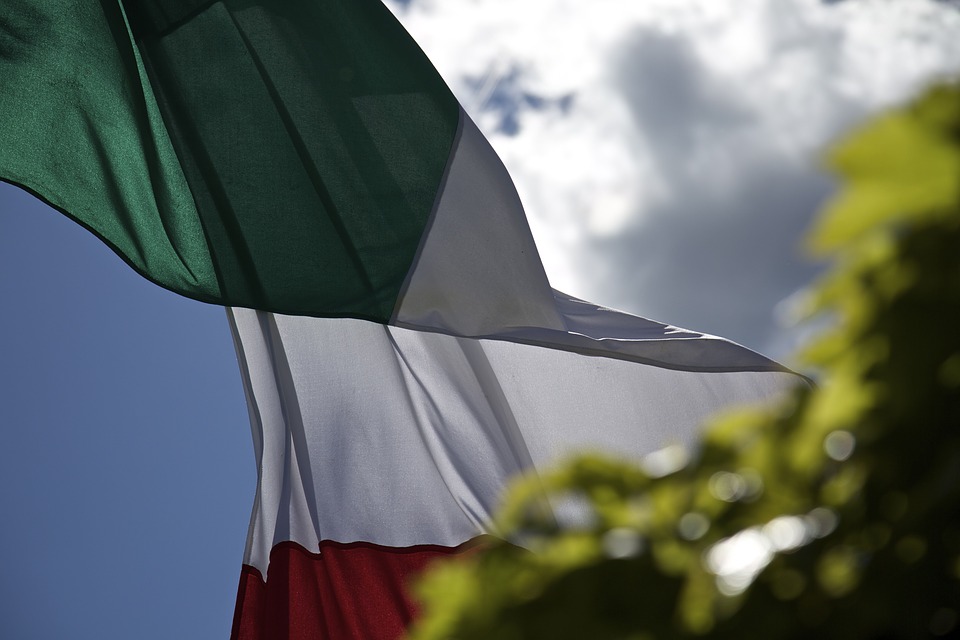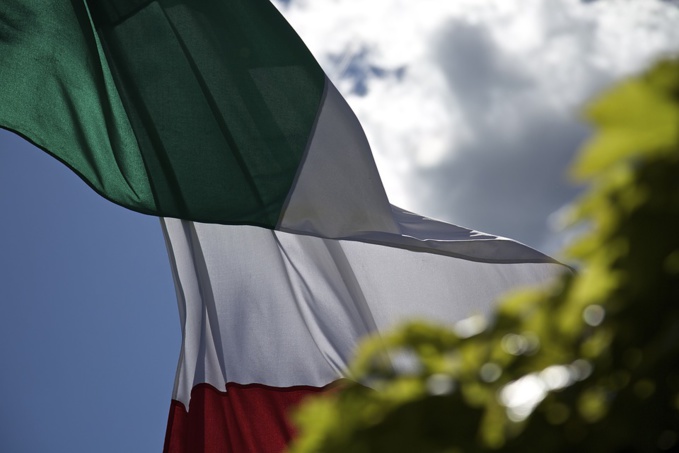"These 3% do not have a scientific basis, and nowhere is it written that we cannot change this," says Paolo Magri of the Five Stars movement. "On the contrary, we want a broader investment policy after years of austerity, which harmed all the countries of Europe, especially those in the South. We must re-negotiate with the EU also because other countries have exceeded this threshold, so do not say that we cannot invest more. "
It is expected that the results of these elections will influence the discussion on the reforms of the institutions of the euro zone, based on the rigid Maastricht criteria of the mid-90s.
"It is extremely important for the Franco-German duo to promptly propose a reform of the euro zone that can revive economic growth and avoid future crises," said Professor of University Libre de Bruxelles Mario Telo. "Secondly, we must change our migration policy, go beyond the Dublin agreements ".
France and Germany should hurry to avoid the infection of the whole of Europe with populism, the expert believes. Just, the problems are manifested earlier in the less developed EU countries.
"We do not belittle the fact that for the Franco-German couple and for sensible forces in the center of Europe, EU reform can be an opportunity to avoid the proliferation of such phenomena in the near future, including France and Germany," he stressed.
According to analysts in Brussels, the crisis of traditional parties directly affects the traditional political democratic apparatus of the European Union, its Brussels decision-making center. It is accused of stagnation and lack of creative initiative.
"Today, not only in Italy, but in general in Europe, unfortunately, only populist and right-wing extremist parties propose changes," said another expert, Jean Michel De Waele.
The Italian problem is a signal of a serious crisis of traditional European left-centrism, which has occupied one of the leading positions in the European Union for a long time. Its adepts could not see the new realities.
"We stood still on the narrative about Europe and globalization, which worked in the 90's, today it shows its limits. We could not reconsider these problems. The League of the North and the 5-star movement not only did this, but also probably gave simpler answers ", - admits a delegate from the Democratic Party of Italy to the European Parliament Nicolò Carboni.
Italy can only be the beginning, but not the end of the retreat of liberal democracy.
"Mr. Renzi and Mr. Macron are somewhat similar to each other: they are young, dynamic, they said we are moving away from the old system, we will carry out reforms." If Macron does not draw conclusions, he risks getting the same problems in France," Jean Michel De Waele believes.
On the one hand, socioeconomic disappointment hit the left center, and the unresolved migration problem at the European level destabilized the traditional right-wing center, pushing the League of the North into the leaders of the conservative coalition.
There are governments in some other EU countries that openly say: "It's time to pursue a focused policy, even if it is necessary to violate generally accepted international standards," so Italy is not alone. However, it is a very big country in this club, and this causes concern. But the Brussels respondents interviewed by Euronews agreed that they should not be afraid. They hope that European society will remain open enough to receive migrants.
Yet, the leaders of the European Union, especially the Franco-German couple, will have to draw conclusions from the fate of their Italian counterpart and take action.
source: euronews.com
It is expected that the results of these elections will influence the discussion on the reforms of the institutions of the euro zone, based on the rigid Maastricht criteria of the mid-90s.
"It is extremely important for the Franco-German duo to promptly propose a reform of the euro zone that can revive economic growth and avoid future crises," said Professor of University Libre de Bruxelles Mario Telo. "Secondly, we must change our migration policy, go beyond the Dublin agreements ".
France and Germany should hurry to avoid the infection of the whole of Europe with populism, the expert believes. Just, the problems are manifested earlier in the less developed EU countries.
"We do not belittle the fact that for the Franco-German couple and for sensible forces in the center of Europe, EU reform can be an opportunity to avoid the proliferation of such phenomena in the near future, including France and Germany," he stressed.
According to analysts in Brussels, the crisis of traditional parties directly affects the traditional political democratic apparatus of the European Union, its Brussels decision-making center. It is accused of stagnation and lack of creative initiative.
"Today, not only in Italy, but in general in Europe, unfortunately, only populist and right-wing extremist parties propose changes," said another expert, Jean Michel De Waele.
The Italian problem is a signal of a serious crisis of traditional European left-centrism, which has occupied one of the leading positions in the European Union for a long time. Its adepts could not see the new realities.
"We stood still on the narrative about Europe and globalization, which worked in the 90's, today it shows its limits. We could not reconsider these problems. The League of the North and the 5-star movement not only did this, but also probably gave simpler answers ", - admits a delegate from the Democratic Party of Italy to the European Parliament Nicolò Carboni.
Italy can only be the beginning, but not the end of the retreat of liberal democracy.
"Mr. Renzi and Mr. Macron are somewhat similar to each other: they are young, dynamic, they said we are moving away from the old system, we will carry out reforms." If Macron does not draw conclusions, he risks getting the same problems in France," Jean Michel De Waele believes.
On the one hand, socioeconomic disappointment hit the left center, and the unresolved migration problem at the European level destabilized the traditional right-wing center, pushing the League of the North into the leaders of the conservative coalition.
There are governments in some other EU countries that openly say: "It's time to pursue a focused policy, even if it is necessary to violate generally accepted international standards," so Italy is not alone. However, it is a very big country in this club, and this causes concern. But the Brussels respondents interviewed by Euronews agreed that they should not be afraid. They hope that European society will remain open enough to receive migrants.
Yet, the leaders of the European Union, especially the Franco-German couple, will have to draw conclusions from the fate of their Italian counterpart and take action.
source: euronews.com



















